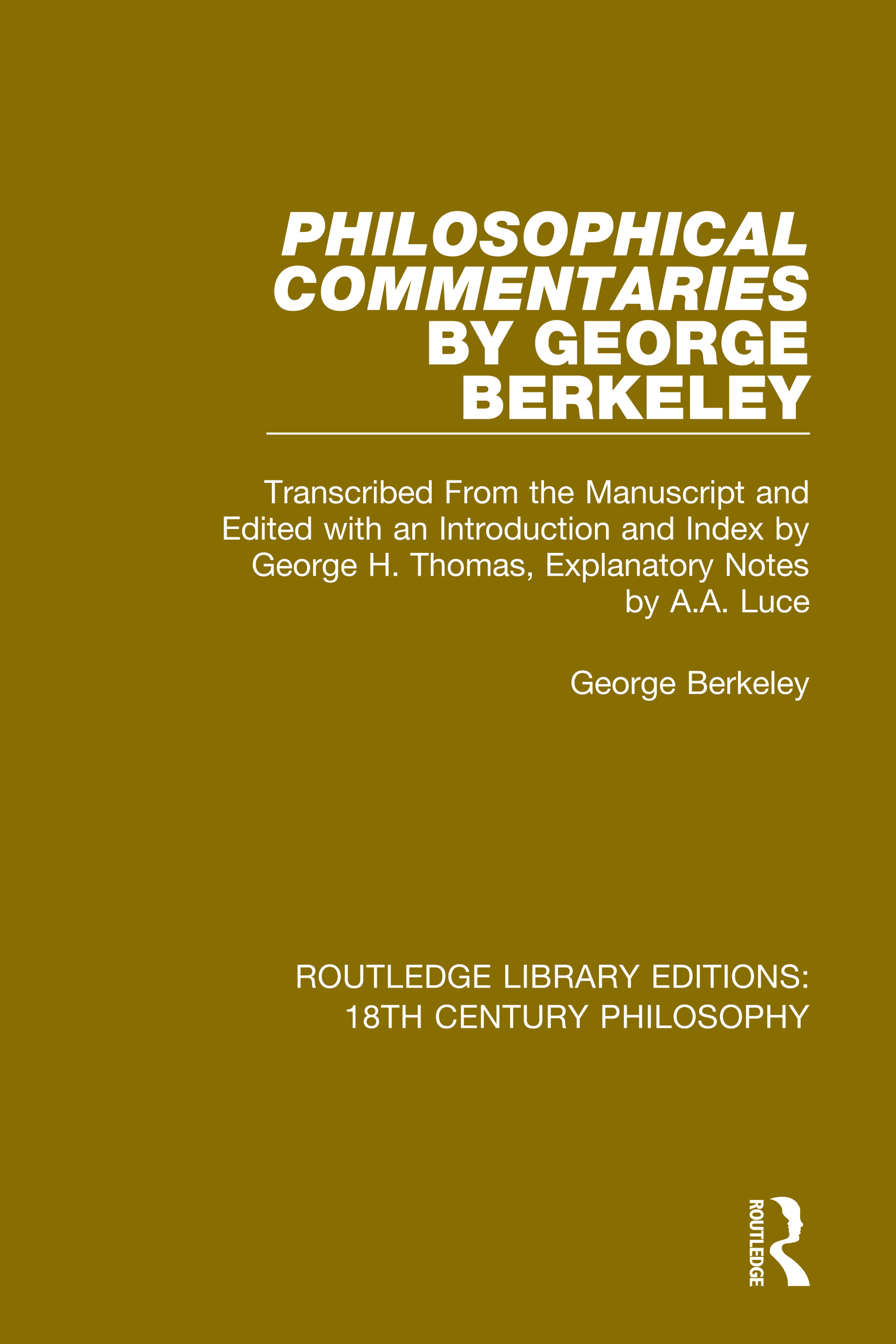A Treatise Concerning the Principles of Human Knowledge: By George Berkeley
By George Berkeley
An Essay Towards a New Theory of Vision: By George Berkeley
By George Berkeley
The Querist: By George Berkeley
By George Berkeley
The Works of George Berkeley (Vol. 1 of 4): Philosophical Works: By George Berkeley
By George Berkeley
Three Dialogues between Hylas and Philonous in Opposition to Sceptics and Atheists: By George Berkeley
By George Berkeley
English Philosophers of the Seventeenth and Eighteenth Centuries: Locke, Berkeley, Hume, With Introductions, Notes and Illustratio: by GEORGE BERKELEY
by GEORGE BERKELEY
The Works of George Berkeley, Volume III: by GEORGE BERKELEY
by GEORGE BERKELEY
Philosophical Commentaries by George Berkeley: by George Berkeley
by George Berkeley
Minute Philosopher: by GEORGE BERKELEY
by GEORGE BERKELEY
Sermons, by the late Rev. George Berkeley, ...: by GEORGE BERKELEY
by GEORGE BERKELEY
Passive Obedience, Or The Christian Doctrine Of Not Resisting The Supreme Power, Proved And Vindicated Upon The Principles Of The: by GEORGE BERKELEY
by GEORGE BERKELEY
The works of George Berkeley, D.D. late Bishop of Cloyne in Ireland. To which is added, an account of his life, and several of his: by GEORGE BERKELEY
by GEORGE BERKELEY
The Danger Of Violent Innovations In The State, How Specious Soever The Pretence, Exemplified From The Reigns Of The Two First Stu: by GEORGE BERKELEY
by GEORGE BERKELEY
Memoirs of George Berkeley, D.D. Late Bishop of Cloyne in Ireland (M. DCC. LXXXIV.: by George Berkeley
by George Berkeley
The Works Of George Berkeley; Including His Letters To Thomas Prior, Esq., Dean Gervais, Mr. Pope, &c. &c. To Which Is Prefixed An: by GEORGE BERKELEY
by GEORGE BERKELEY
Berkeley's Principles and Dialogues: Background Source Materials: by GEORGE BERKELEY
by GEORGE BERKELEY
The Works Of George Berkeley: Life And Letters...: by GEORGE BERKELEY
by GEORGE BERKELEY
Arithmetica absque algebra aut Euclide demonstrata. Cui accesserunt, cogitata ... de radicibus surdis, ... ludo algebraico, &c. Au: by GEORGE BERKELEY
by GEORGE BERKELEY
The Works of George Berkeley ...: Including His Posthumous Works; with Prefaces, Annotations, Appendices, and an Account of His Li: by GEORGE BERKELEY
by GEORGE BERKELEY
The English Revolution Vindicated From The Misrepresentation Of The Adherents Of The House. Of Stuart: In A Discourse Preached At: by GEORGE BERKELEY
by GEORGE BERKELEY
Two letters from the Right Reverend Dr. George Berkeley, ... the one to Thomas Prior, Esq; concerning the usefulness of tar-water: by GEORGE BERKELEY
by GEORGE BERKELEY
A Word To The Wise: Or, An Exhortation To The Roman Catholic Clergy Of Ireland. By A Member Of The Established Church.: by GEORGE BERKELEY
by GEORGE BERKELEY
Siris: A Chain Of Philosophical Reflexions And Inquiries Concerning The Virtues Of Tar Water, And Divers O: by GEORGE BERKELEY
by GEORGE BERKELEY
Works; Including his Posthumous Works Volume 4: by GEORGE BERKELEY
by GEORGE BERKELEY
The Works Of George Berkeley: Including His Posthumous Works, Volume 4: by GEORGE BERKELEY
by GEORGE BERKELEY
Works; Including his Posthumous Works Volume 3: by GEORGE BERKELEY
by GEORGE BERKELEY
The Works Of George Berkeley, D. D. Formerly Bishop Of Cloyne, Volume 1...: by GEORGE BERKELEY
by GEORGE BERKELEY
Indian Legends: Being a Choice Collection of the Best Legends: by GEORGE BERKELEY
by GEORGE BERKELEY
The Adventures of Signor Gaudentio Di Lucca: Being the Substance of His Examination Before the Fathers of the Inquisition, at Bolo: by George Berkeley
by George Berkeley
The Danger of Violent Innovation in the State Exemplified From the Reigns of the Two First Stuarts. In a Sermon Preached at ... Ca: by George 1685-1753 Berkeley
by George 1685-1753 Berkeley





; Philosophical Works.jpg)

























